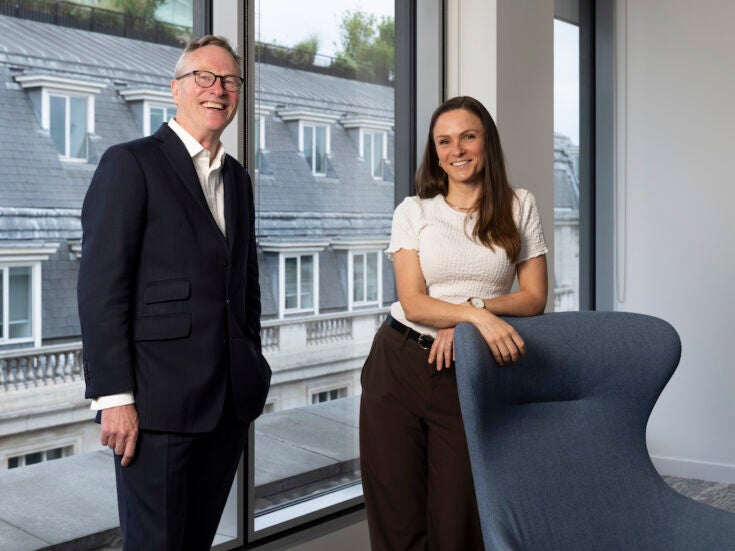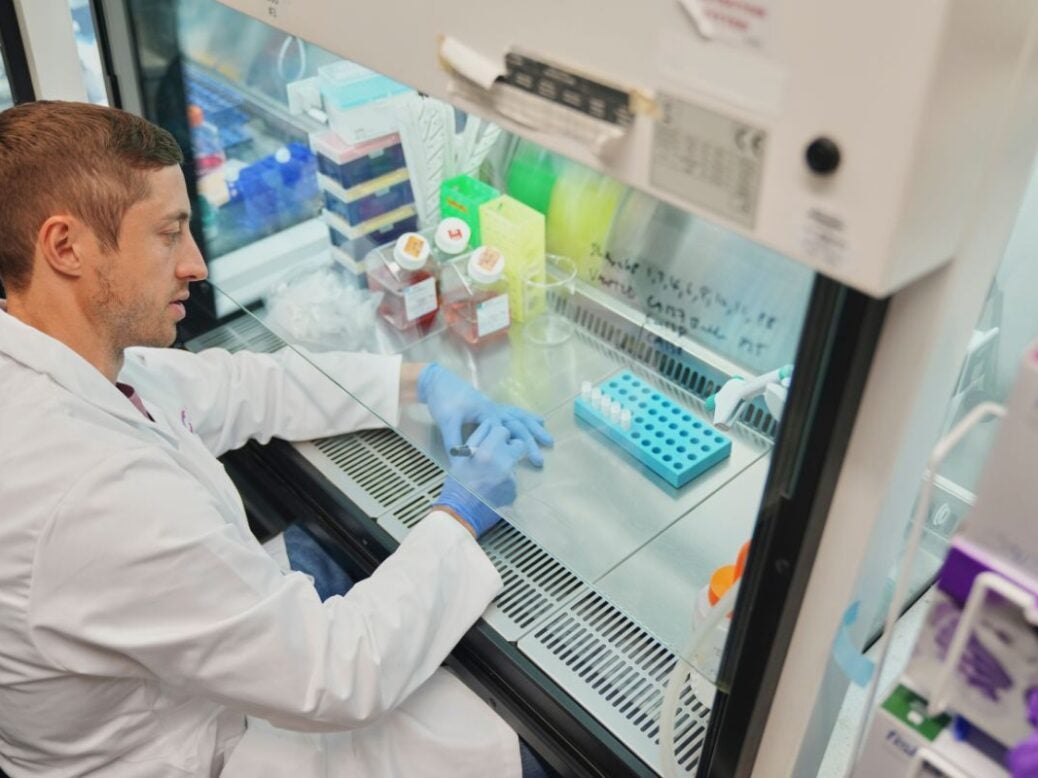
Cancer is the defining health issue of our time, with nearly one in two people diagnosed with the disease in their lifetime1. In fact, the average number of new cancer cases in the UK each year is projected to rise from around 420,000 cases in 2023-2025 to around 506,000 cases in 2038-20402.
For more than 100 years, Cancer Research UK has been part of the solution to this problem, pioneering research, tools and treatments which benefit millions of cancer patients worldwide. Today, while rapid technological advances are accelerating the pace of scientific discovery, the charity’s philanthropy campaign – More Research, Less Cancer – aims to raise £400 million by 2028 to help find the next generation of diagnostic tests and treatments.
To date, Cancer Research UK has raised over half the funds, with £229 million donated by high-net-worth individuals and foundations.
A golden age for scientific discovery
‘Thanks to developments in areas like AI, vaccine technology and genomics, cancer research is moving faster than ever. We stand on the cusp of a golden age for scientific discovery,’ says Stephen Massey, Cancer Research UK’s Senior Philanthropy Lead.
[See also: Super-rich are giving away more of their money than ever before]
‘But discoveries in the lab only help people affected by cancer if they are turned into tools, treatments and diagnostics that reach patients,’ says Massey. ‘The best research initiatives can secure academic funding and well-developed treatments can attract investors and industry partners, but many promising innovations get lost in the gap between these stages.’
To address this challenge, Cancer Research Horizons – a non-profit, entrepreneurial subsidiary of Cancer Research UK – is backing start-ups with promising ideas to fast-track scientific breakthroughs into patient benefit.
Cancer Research Horizons’ track record is impressive, with 14 drugs taken to market that have been used for more than six million courses of treatment and, overall, more than £600 million from royalties and intellectual property has been returned to Cancer Research UK to fund further discovery.
‘But by bridging the funding gap we could do much more,’ Massey says.
To achieve this, Cancer Research UK has committed £15 million to a Seed Fund dedicated to backing early-stage cancer ventures. Now, the More Research, Less Cancer philanthropy campaign aims to double the firepower of the Seed Fund.
Bridging the gap between research and impact
A visionary £10 million donation from the Garfield Weston Foundation will support Cancer Research Horizons to propel more research breakthroughs from the lab towards the clinic.
‘Cancer Research UK is one of the best placed partners to help cancer treatments, diagnostics and technologies reach clinics faster,’ says Sophia Weston OBE, Deputy Chair of Trustees of the Garfield Weston Foundation.
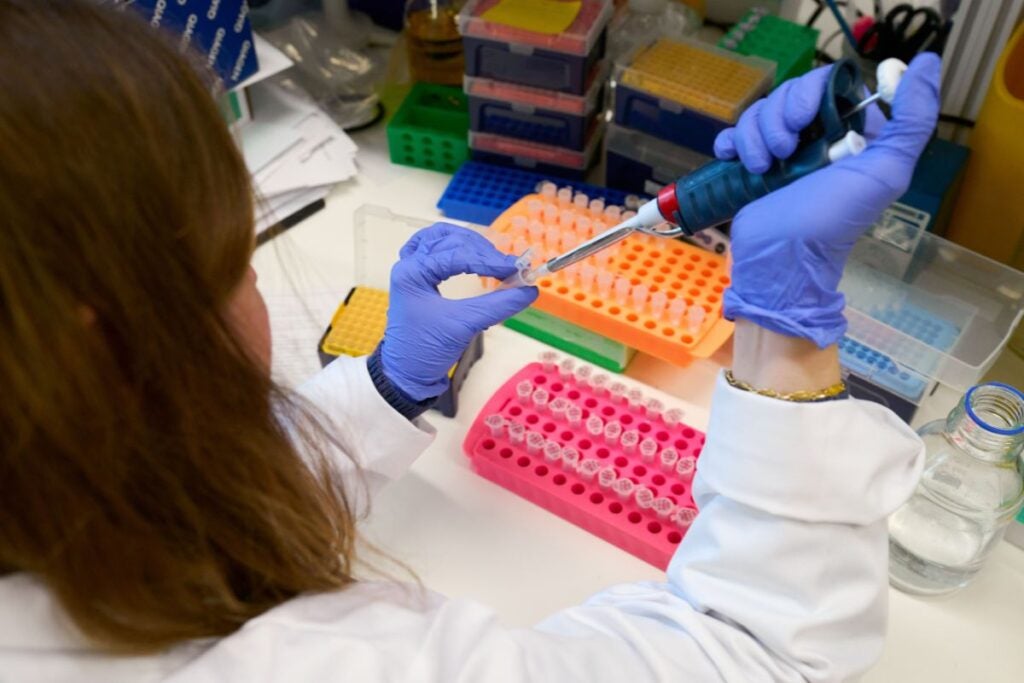
‘Every gift towards the Seed Fund unlocks the potential to move forward discoveries that could otherwise stall en route to the clinic. This could mean saving the life of a family member, partner or friend. The Trustees were pleased to be able to award £10 million to the Seed Fund, our biggest grant this year, as it has the potential to have impact for people all over the world.’
To support the More Research, Less Cancer campaign’s ambition to double the power of the Seed Fund, Cancer Research UK has partnered with the investment community to establish a unique philanthropic initiative: the Cancer Impact Club.
The club brings together leaders from private equity, venture capital and entrepreneurial backgrounds, aiming to raise the remaining £5 million from 50 members who would commit to donating £100,000 each over three years. For a top-rate UK taxpayer, such a donation could cost just over £18,300 per year.
[See also: DKMS chairwoman Katharina Harf on her mother’s legacy and 12 million donors]
‘We are helping take promising early-stage ideas for new tests and treatments and spinning them out of the lab,’ Darren Redmayne, a founding member of the Cancer Impact Club, tells Spear’s.
‘These are higher-risk investments because Cancer Research Horizons focuses on translation to deliver patient benefit. They take a long-term view, and they can tolerate earlier-stage risks where others can’t. And all returns are reinvested back into more research and translation.’
‘This higher-risk approach offers a potentially transformative return in terms of benefit for cancer patients,’ Redmayne adds. ‘This balance of high risk and high-potential reward is instinctively familiar to the private equity and venture capital community interested in supporting through philanthropy.’
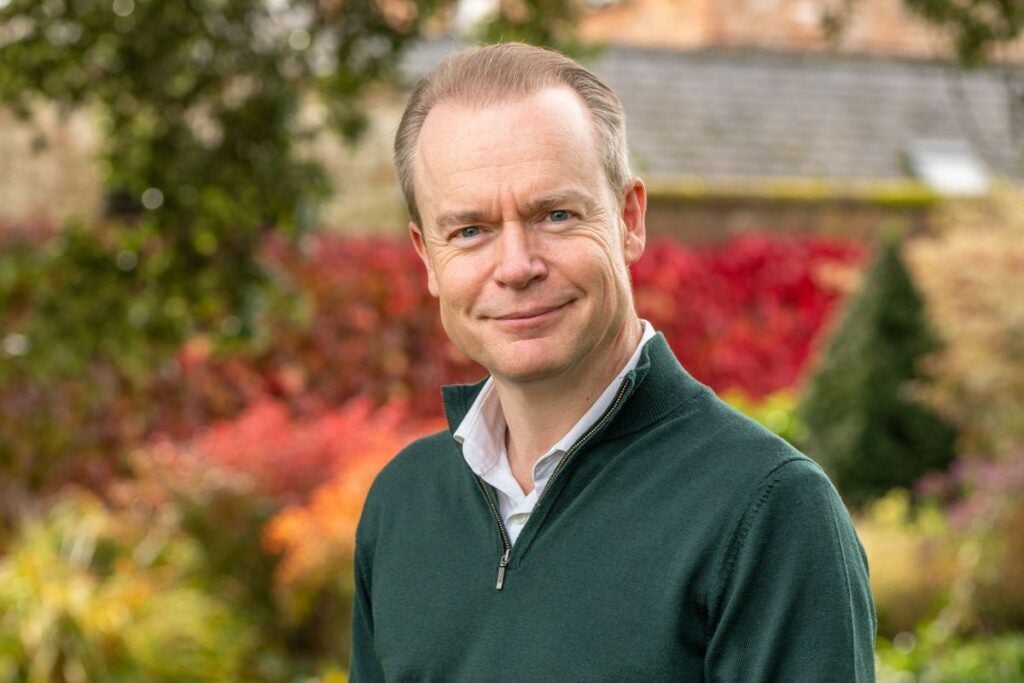
To date, the club has welcomed 13 members including Redmayne, the CEO of Affinia backed by Sovereign Capital, as well as Robert Easton, the former chair of the British Venture Capital Association; Richard Anthony, the CEO of Evercore Private Funds; Dale Lattanzio of DRC Savills; and Christiian Marriott, formerly of Equistone Partners.
‘They are business builders who can use their investment expertise and networks to multiply our impact through philanthropy,’ says Redmayne.
[See also: Prominent philanthropists call for UK to give more]
A unique proposition
There is a reason why the Cancer Impact Club is called a club. Not only does it create a chance for like-minded industry peers to come together, but its community-based approach to philanthropy and business is very much at the centre of its proposition.
‘We really want to bring together a powerful community and ensure that members have a fantastic experience,’ Redmayne says.
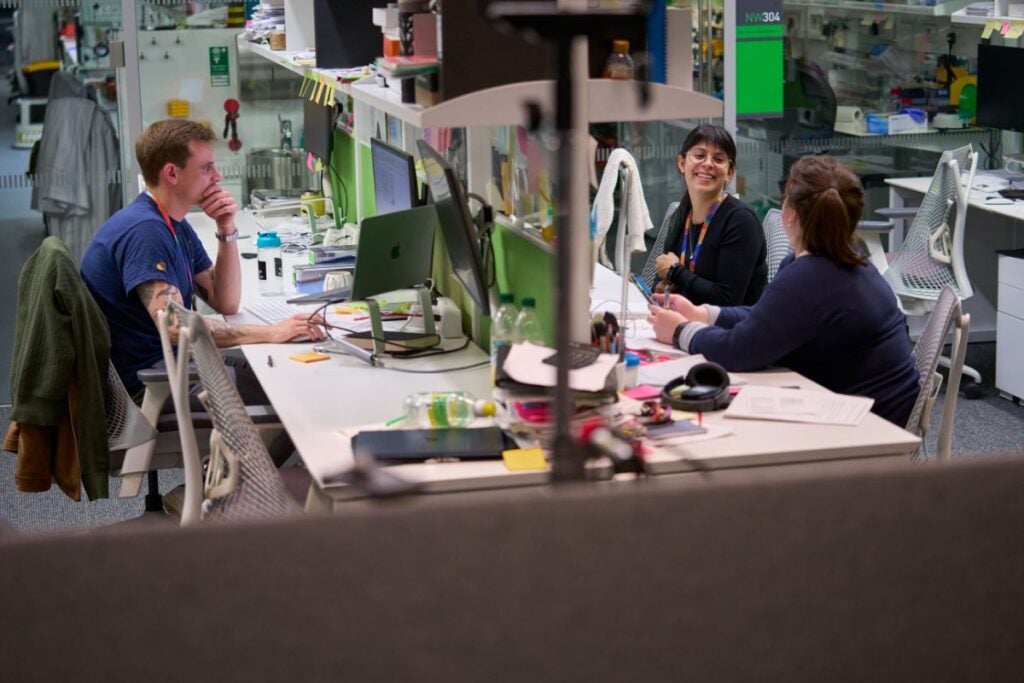
Through its establishment under Cancer Research Horizons, the Cancer Impact Club links philanthropy capital with world-class expertise, offering its members a chance to witness early-stage ventures progressing to become commercially viable. ‘Members get to meet the scientists and learn from that pioneering research,’ says Redmayne. ‘And they get to play a key role in transforming the outlook on cancer for future generations.’
The Seed Fund has already invested in more than 20 start-ups. Those include the likes of Infinitopes, which delivers revolutionary cancer vaccines that power the immune system to fight cancer metastases, and Trogenix, which uses new technology to deliver a precisely targeted glioblastoma brain tumour treatment.
Redmayne knows that people with an entrepreneurial mindset will be attracted by what the Cancer Impact Club has to offer: ‘I approach philanthropy the same way I approach investments in my business career,’ he says.
[See also: We must stop being suspicious of philanthropy]
‘I want to work with excellent partners and see a real impact from the money I invest.’ He explains that through the Cancer Impact Club, he hopes his philanthropy will secure a superior return in the shape of lasting and life-changing benefits for future cancer patients.
Growing impact
So far, the Seed Fund has deployed £8 million into early-stage cancer ventures and – thanks in part to Cancer Research Horizons’ reputation – those companies have gone on to secure £32 million in investment from other sources. To build on this success, the club aims to recruit a total of 50 members by the end of 2025.
[See also: James Reed: Why entrepreneurs should make philanthropy part of their company’s DNA]
‘We are mobilising the networks of the existing members to help us find other like-minded people in the business community,’ Redmayne says. Additional members will help the Seed Fund increase the number of investments made, and take bigger risks in visionary cancer start-ups, generating greater returns for Cancer Research UK.
Redmayne tells Spear’s he is feeling ‘extremely optimistic’ about the Cancer Impact Club and believes that members can take pride from their contribution to improving the lives of cancer patients and their loved ones.
As for potential new members, he is ready to welcome people who’d like to become part of this transformational community: ‘We’d be delighted to hear from them.’

More support means less cancer. To find out more about investing in Cancer Research UK’s life-saving work, visit the More Research, Less Cancer website.
- To get involved with the Cancer Impact Club, contact Cancer Research UK’s Senior Philanthropy Lead, Stephen.Massey@cancer.org.uk
- Cancer Research UK is a registered charity in England and Wales (1089464), Scotland (SC041666), the Isle of Man (1103) and Jersey (247).
- cruk.org/lifetimerisk
- Calculated by the Cancer Intelligence Team at Cancer Research UK, February 2023. Age-period-cohort modelling approach, using 2020-based population projections and observed cancer incidence (1975-2018 for England, Scotland and Wales, 1993-2018 for Northern Ireland)

